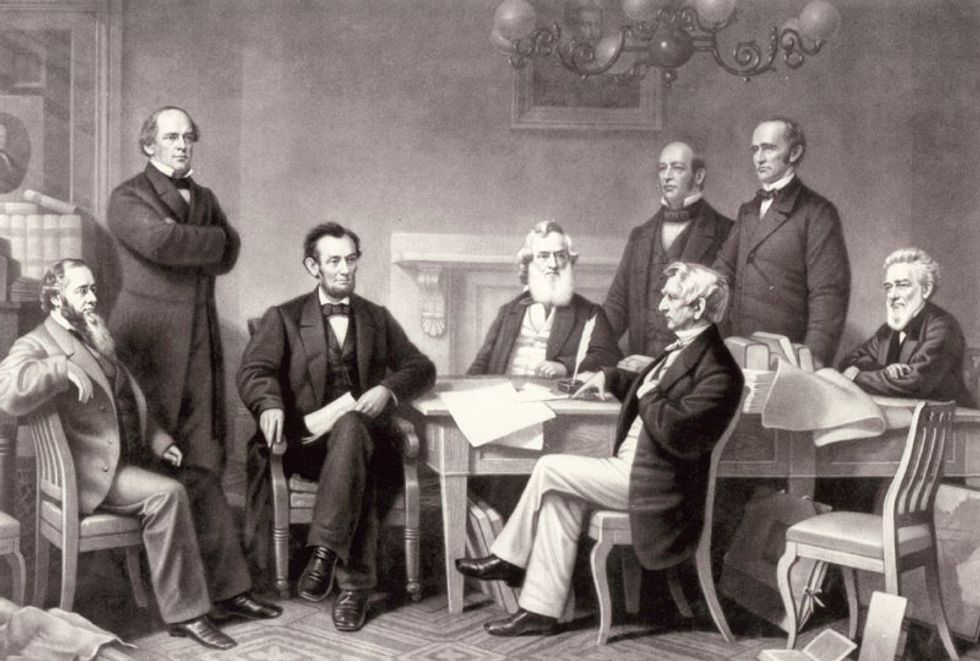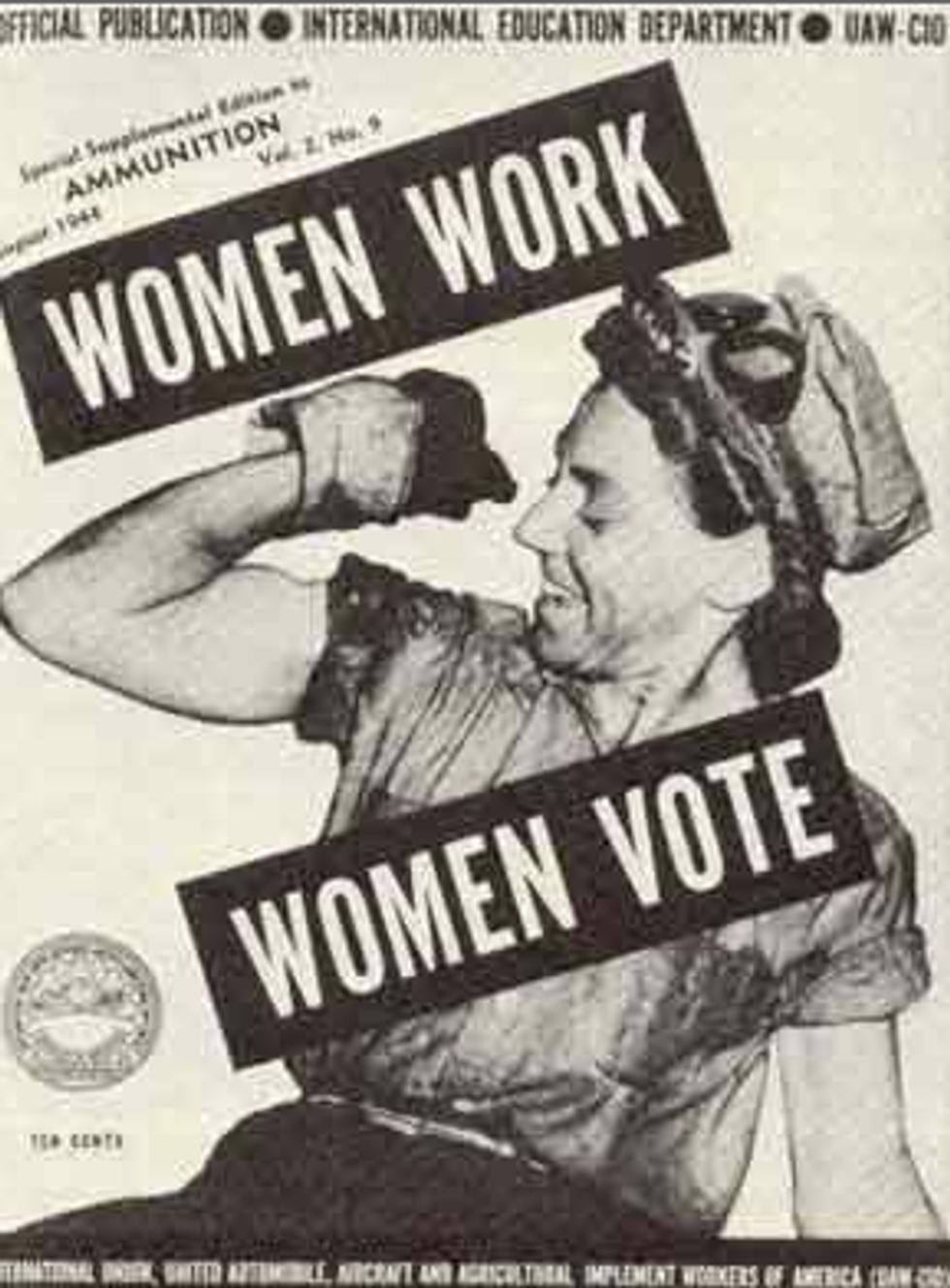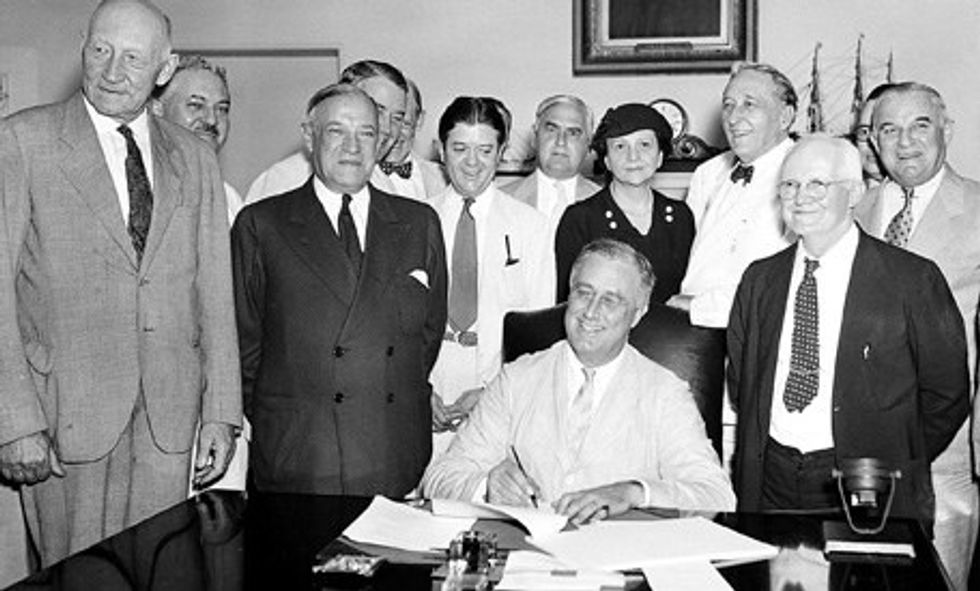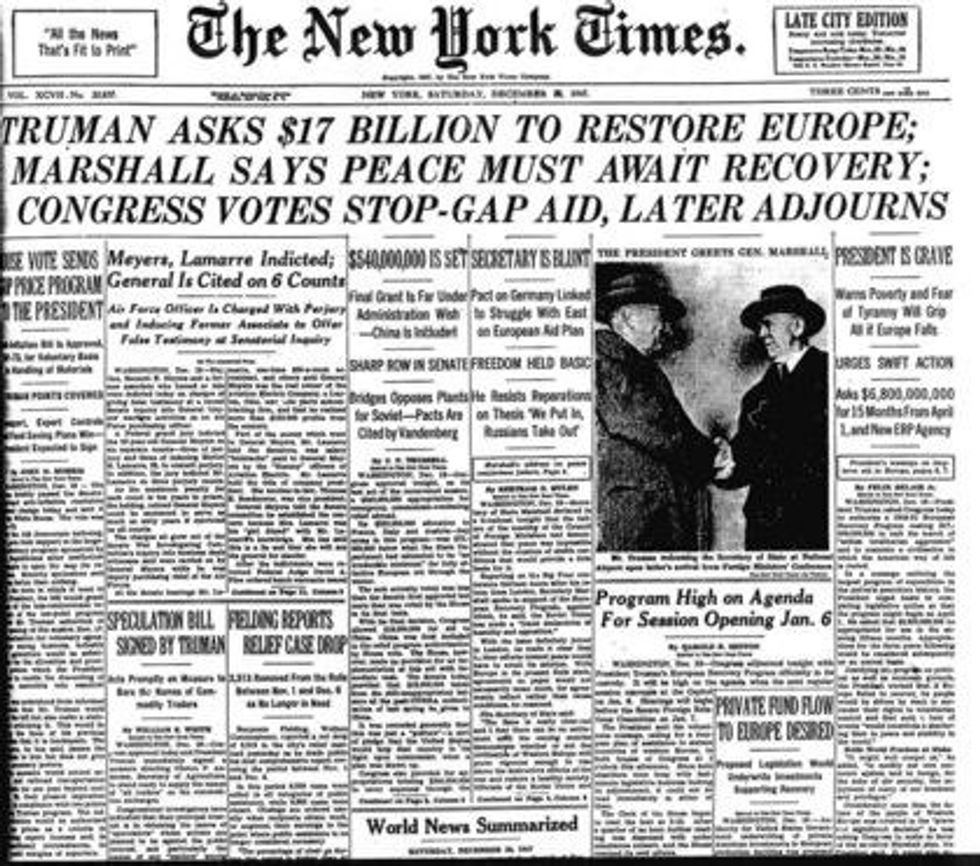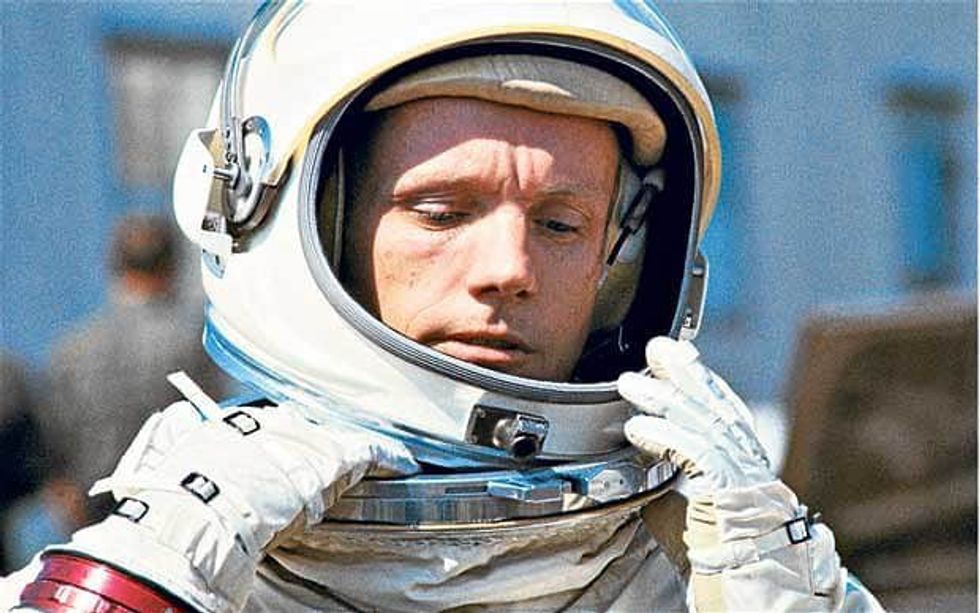"Make America Great Again."
It was the theme of Donald Trump's entire presidential campaign, thus it is only fitting that he saw to make it the theme of the 45th Presidential Inauguration on January 20th. According to Gallup, Trump enters his presidency with only a 44% approval rating, the lowest approval rating for a president entering office since the 1940s, and it only takes a quick glance at social media to see the backlash of the results of the 2016 election.
Throughout the election, members of both parties took to social media to voice their political opinions in an unforeseen manner. Arguably, social media was used as a cost-effective method to spread each candidates' ideologies more so than in any previous election. Equally, concerned citizens used social media as an outlet to emotionally reject Trump's election. Left wingers even went so far to birth a "#FirstWhore" hashtag following Melania Trump's provocative modeling pictures being leaked to the internet, and Twitter erupted with "not my president" repetitions. Individuals vocalized that they didn't know a time when America was great in the first place, with the argument stemming from the fact that blemishes, such as slavery and inequality for women, populate themselves on the face of American history to begin with.
Putting it bluntly: to say that America was never great is simply ignorant, choosing to overlook the accomplishments that the country has strived towards. According to Merriam-Webster Dictionary, "great" is defined as:
"remarkable in magnitude, degree, or effectiveness."
In order for something to be qualified as relatively great, it must be surpassing a set standard. When Trump refers to America as great, he is not implying that it was great for every individual within the borders at any given moment. Due to our capitalistic society, there will always be inherent winners and losers; just like countries will always be relatively great or sub-par in comparison to one another.
To combat this saddening decline in patriotism, here are some of the brightest moments of greatness in American history in chronological order.
Vermont Frees its Slaves - 1777
When signing the Emancipation Proclamation, Abraham Lincoln stated that "I never, in my life, felt more certain that I was doing right, than I do in signing this paper. If my name ever goes into history it will be for this act, and my whole soul is in it" (Painting by Francis Bicknell Carpenter).
According to Mount Holyoke, Vermont amended its constitution to free all slaves who were 21-years-old or older within its borders in 1777. Although the United States did not constitutionally abolish slavery for nearly another century, this was one of the first steps in world history towards acknowledging the wrongfulness of holding slaves. Eleven years later, when the Constitution was ratified in 1788, Congress was granted the ability to ban the slave trade after 20 years were allotted to the states to help develop themselves.
Although the institute of slavery is heinous, and the fact that it was such an influential part of America's founding is regrettable. However, it is admirable that the United States was one of the first countries to begin the process of banning slavery. In comparison, France did not outlaw slavery until 1794, following the French revolution (in which they based their constitution upon the American rebels'), and England did not do so until 1833. Other countries, such as Russia, still hold slaves to this day.
Thus, in this matter America was great.
Colorado Enfranchises Women - 1893
In 1893, Colorado became the first state within the United States to declare that the right to vote also included women. Again a demonstration of America's ability to recognize a shortcoming within its structure became apparent, and the United States passed the 19th Amendment in 1920 to legalize the right for all women within the country to vote.
Although waiting until the 20th century to declare women and men legally equal seems preposterous, one would do well to remember that greatness is a relative term. The United States legally giving women the right to vote in 1920 made us one of the earliest countries to do so, alongside Australia and New Zealand. England followed in our footsteps in 1928, and later France did so as well in 1945.
Thus, in this matter America was great.
The Social Security Act - 1935
On August 14th, 1935, President Franklin D. Roosevelt enacted the Social Security Act, paving the way for modern social reform and initiatives (Associated Press).
As stated earlier, a free-market capitalist society is one that inherently produces winners and losers. Although many benefits are available from operating an economy capitalistically, the economic worldview has often been criticized for how the poor, lower class is left to fend for themselves as the upper class hoards profits.
This one's for you fiscally liberal folks.
In 1935, President Franklin D. Roosevelt enacted the Social Security Act, establishing programs to assist various segments of social classes in day-to-day sustainability. Unemployment compensation is one of the many programs that still exist today.
Although socialism provides less potential for growth and less incentive for people to pursue entrepreneurship, Roosevelt passing the Social Security Act was one step away from pure capitalism and one step towards a society that bears responsibility for its working class.
Thus, in this matter America was great.
European Recovery Program - 1948
New York Times front page, December 20th, 1947.
One of the many reasons that Adolf Hitler was able to rise to power following World War I was due to the amount of restrictions and fines that the Allied powers placed upon Germany. In fact, Germany took majority of the blame following the Great War, and the financial implications of their sentencing left them in economic ruin.
The United States recognized this as a key issue that should not be repeated following the second world war, and following the conclusion of the war George Marshall conceptualized the Marshall Plan in a speech at Harvard University. The European Recovery Program was coined and America provided over $12 billion dollars (over $120 billion when adjusted for modern inflation) to European countries, to help offset the devastation brought on from World War II.
America's financial contributions helped to provide food to citizens who were facing famine brought on by the agricultural stalls of the war. It also helped to rebuild factories and various organizations, contributing to jump-starting the European economy through 1951 when the initiative concluded.
Thus, in this matter America was great.
Lunar Landing - 1969
Neil Armstrong (pictured - Corbis) commanded the Apollo 11 mission in 1969, and became the first man to step foot on the moon.
Following World War II, the United States found itself locked within a political cold war with USSR. One of the many non-violent competitions between the two nations included the space race.
In 1961, President John F. Kennedy began to dramatically expand upon the American space program, pledging that "this nation should commit itself to achieving the goal, before the decade is out, of landing a man on the moon and returning him safely to the earth."
Although the USSR was the first nation to allow a human being to orbit Earth in 1961, the United States cemented a victory in the space race in 1969. Commanding Apollo 11, Neil Armstrong became the first man to step foot on the moon, placing the American flag on the lunar surface in a stunning display of patriotism. It was a moment of great technological achievement, as no frontier was deemed unattainable for mankind following this event.
Thus, in this matter America was great.
Education Standings - 2014
Prior to the Constitution being established, the United States acknowledged a nation's role in an education system in 1785. Throughout the first century of America's existence, Congress granted over 77 million acres of land to provide public schooling.
Due to the amount of resources America poured into the education system, we jumped to the highest tier of educated countries in the world. According to a study conducted by U.S. Today in 2014, the United States is the 5th most educated country in the world trailing Israel, Japan, Canada, and Russia.
Despite our high placement in education, the United States actually has a slower education growth rate than the other top four nations (1.4% compared to 3.6% average among the other nations). Although America was once great in paving the way for education, we are now in a position to be surpassed by more rapidly growing education systems throughout the world.
Although Donald Trump's election was a shocking conclusion for many American citizens, it is clear that there is validity in saying that America has achieved greatness multiple times in the past. Despite our shortcomings, America has constantly been a symbol of innovative ideas, carrying the battles of social reform to the global level. We have recognized our needs to change, and then urged other countries to follow suite in hopes of bettering the world for all of its inhabitants. No matter your stance on the election result, remember the nation that you are associated with and be proud - we have been great in the past and we are simply trying to return to greatness in the future.




